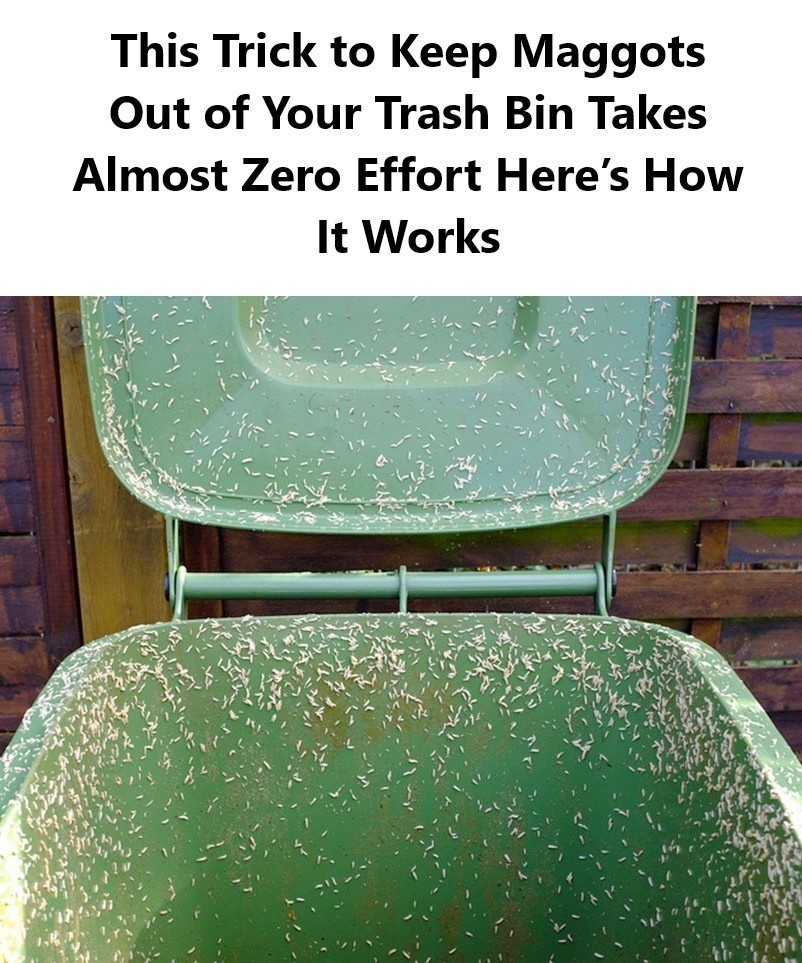ADVERTISEMENT
Maggots in the Trash Bin? Here’s How to Prevent Them
Finding maggots in your trash bin is not only unpleasant but also a sign of improper waste management. These tiny, wriggling pests are the larvae of flies, and they’re usually attracted to food waste that hasn’t been disposed of properly. While the sight of maggots can be disturbing, the good news is that with a few simple preventative steps, you can keep your trash bins maggot-free.
In this article, we’ll explore what causes maggots in the trash bin, why they’re attracted to your waste, and—most importantly—how you can prevent them from invading your space.
Why Do Maggots Appear in the Trash Bin?
Maggots are the larvae of houseflies and other types of flies. Flies are naturally attracted to decaying organic matter, particularly food waste. When a fly lays eggs in your trash, those eggs hatch into maggots, which then feed on the rotting organic matter. If your trash contains leftover food scraps, especially meat or other protein-rich items, it creates the ideal environment for flies to lay their eggs, resulting in maggots.
Some of the most common causes of maggots in the trash bin include:
- Food scraps: Unwrapped food waste, especially things like meat, dairy, or fruits, attract flies.
- Overflowing bins: If your trash bin is overflowing, it can create an environment where flies are more likely to find a place to lay their eggs.
- Improper sealing: If the lid of your trash bin is left open, flies have easy access to the waste, making it more likely they will lay eggs.
- Warm weather: In warmer months, flies are more active, and maggots can appear more frequently in trash bins.
How to Prevent Maggots in Your Trash Bin
Now that you know why maggots appear, let’s talk about how to prevent them from becoming a problem in your trash bin. Here are some simple and effective steps to keep your trash maggot-free:
1. Seal Food Waste Properly
One of the best ways to prevent maggots is to avoid attracting flies in the first place. Seal food waste in plastic bags or use compostable liners for organic waste. Wrapping meat scraps, fruit peels, or leftovers tightly in bags prevents flies from accessing them. If you’re not composting, ensure all food waste is fully enclosed before placing it in the trash.
2. Use a Secure Trash Bin with a Tight Lid
Ensure your trash bin has a tight-fitting lid that seals properly. A lid that doesn’t close completely can let flies inside, where they can lay eggs. For extra protection, consider using bins with a locking mechanism to prevent both flies and odors from escaping.
For Complete Cooking STEPS Please Head On Over To Next Page Or Open button (>) and don’t forget to SHARE with your Facebook friends
ADVERTISEMENT
ADVERTISEMENT
